- Research
- Research Centers
- Journals
- Admission
- Introduction
- Programs
- Application
- Alumni & Giving
- Alumni Club
- Giving
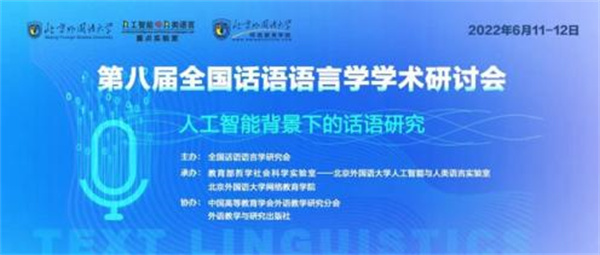
The Eighth National Symposium on Discourse Linguistics is held via video conference from June 11 to 12. [Photo/bfsu.edu.cn]
The Eighth National Symposium on Discourse Linguistics was held via video conference from June 11 to 12.
The virtual conference was hosted by the Chinese Society for Discourse Linguistics Research. It was organized by the Foreign Language Teaching and Research Branch of the China Association of Higher Education and the Foreign Language Teaching and Research Press and undertaken by the Artificial Intelligence and Human Languages Lab (BFSU·AI) and Beiwai Online at Beijing Foreign Studies University (BFSU).
Tang Jinlan, dean of Beiwai Online and deputy director-general of BFSU•AI, presided over the opening ceremony.
With the theme of “Discourse Studies in the AI Era”, the event brought together over 100 experts and scholars from prestigious universities at home and abroad, who held discussions on discourse cognition and calculation.
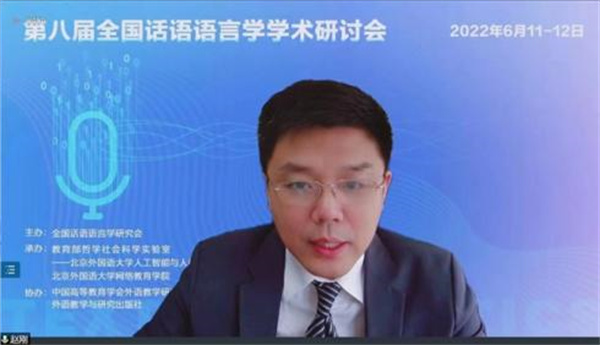
Zhao Gang, member of the standing committee of CPC BFSU committee and vice-president of the university, speaks at the Eighth National Symposium on Discourse Linguistics. [Photo/bfsu.edu.cn]
Zhao Gang, member of the standing committee of CPC BFSU committee and vice-president of the university, extended warm welcome to all participants and gave an introduction on the Chinese Society for Discourse Linguistics Research, BFSU, BFSU•AI and Beiwai Online as well as the latest scientific achievements made by the lab.
BFSU has a long tradition in the teaching and research of discourse linguistics, and its scholars have produced professional publications with great influence in the discipline, Zhao said.
Discourse linguistics is an interdisciplinary discipline with bright future and great impacts. The symposium is of great importance to deepen the research of classical theories in the field and promote the studies and application of frontier topics, Zhao added.
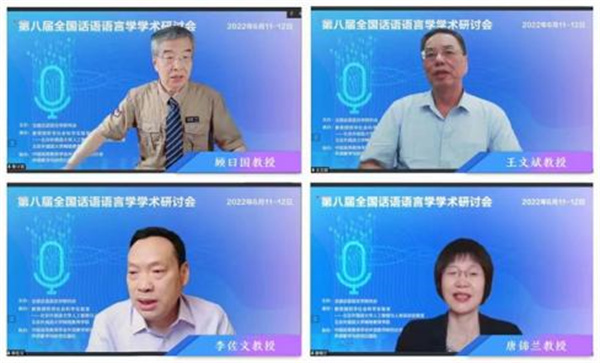
BFSU experts give speeches at the opening ceremony of the Eighth National Symposium on Discourse Linguistics. [Photo/bfsu.edu.cn]
Gu Yueguo, chief expert of BFSU•AI and honorary dean of Beiwai Online, reviewed the history and development of discourse linguistics and suggested building a global community for all through problem-solving research in social economy and cultural life.
Wang Wenbin, director of the National Research Centre for Foreign Language Education, hailed the scientific progress attained by BFSU•AI and expounded on such concepts as brain structure, the common and distinctive features of discourses and languages, and the identification of the basic units of discourses in the AI era.
Li Zuowen, director of BFSU•AI and head of the Chinese Society for Discourse Linguistics Research, said society will work together with domestic experts and scholars to promote the further development of the discipline.
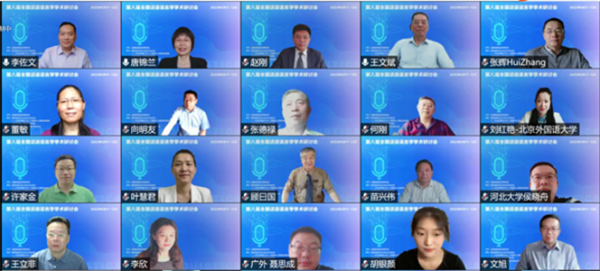
Professors and officials give keynote speeches at the Eighth National Symposium on Discourse Linguistics. [Photo/bfsu.edu.cn]
During the symposium, professors and officials gave speeches on the following topics: narrative capacity and life journey of the elderly, research methods of multi-modal discourse analysis from the perspective of social semiotics, natural language processing-oriented general text semantic computing model, classification of business discourse, discourse construction in critical discourse research, the mode of cultural pragmatic interpretation, social cognition, self-concept and discourse construction, mental rotation in critical cognitive linguistics, and probabilistic contextual co-selection in discourse research.
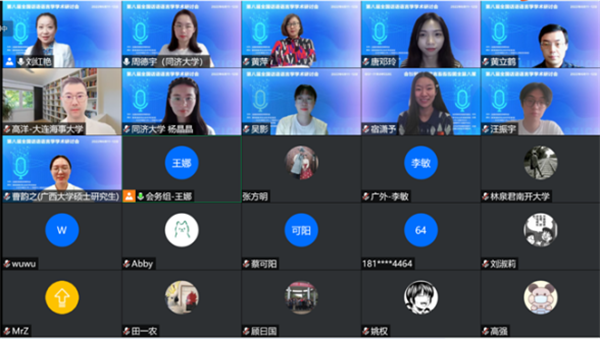
Experts and scholars exchange views at the parallel sessions. [Photo/bfsu.edu.cn]
The symposium included 16 parallel sessions on a wide range of topics. According to its organizers, the symposium attracted scholars from 105 universities nationwide and exhibited 161 research results which showed the development trend, hot-spot issues and existing problems in China’s discourse studies.
The two-day virtual conference was followed by 22,000 online audiences via Sina Weibo and other social media platforms, winning positive responses.